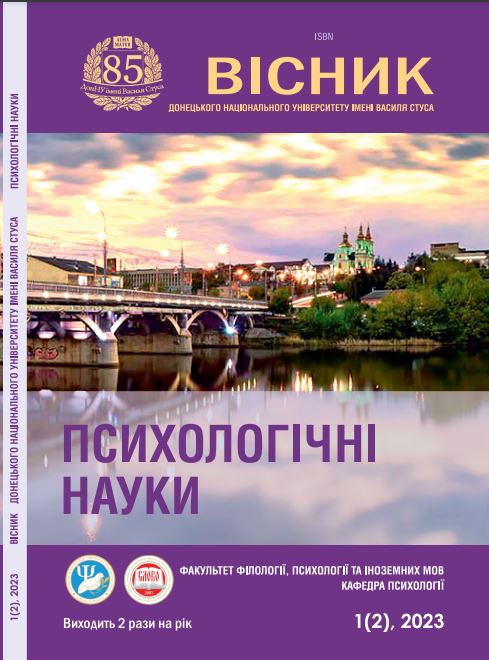Teaching adults a foreign language (on example of the extramural department of UEPA)
DOI:
https://doi.org/10.31558/2786-8745.2023.1(2).7Keywords:
foreign language for special purposes; adult students; distance learning; linguistic experience; motivation; pedagogical conditions; competence-based approach; Moodle platformAbstract
The article is devoted to the problem of teaching foreign languages to adults on the example of the extramural department of Ukrainian Engineering Pedagogics Academy (UEPA) : combining work and study, lack of sufficient time, limited amount of educational material studied, as well as the advantage of independent work. These conditions require special approaches to the foreign language teaching process to extramural students: extensive using Internet sources; distance learning course and electronic textbooks; increasing motivation and personal interest; effective students’ independent work; proper organization of knowledge control. The authors emphasize that the extramural form is associated with the training of people who, as a rule, have already sufficiently developed not only personally but also professionally. The paper defines the key pedagogical principles in the process of foreign language teaching to adult students at an engineering university, emphasizes the necessary pedagogical conditions for the productive mastering of the discipline by adults.
The article presents an analysis of textbooks, manuals and guidelines on foreign language for extramural students of engineering specialties, which testifies to the implementation of the traditional language approach in the process of creating teaching materials. Recommendations are given on the preparation and use of teaching materials in order to achieve the goals set by the programs and syllabuses in the discipline «Foreign Language» for technical universities. The a uthors n ote t hat UEPA has long and successfully transferred foreign language classes for extramural students to the MOODLE platform, effectively providing a visual presentation of the material, forming a creative approach to learning and developing self-learning skills in the context of foreign language training.
The article concludes that it is advisable to develop a new effective model of teaching a foreign language to extramural students of technical specialties, significantly i mproving t he q uality o f education and reducing the time of mastering a foreign language for special purposes
References
Kozlova O. V. Integrativnaja tehnologija obuchenija vzroslyh inostrannomu jazyku. Sovremennye naukoemkie tehnologii [Integrative technology for teaching adults a foreign language]. 2005. №8. S. 135-137.
Nemov R. S. Psihologija: ucheb. dlja stud. vyssh. ped. ucheb. zavedenij. [Psychology: textbook. for stud. higher ped. textbook establishments] M.: VLADOS.
Bryntseva O. V. Formy kontroliu yakosti inshomovnykh znan studentiv u tekhnichnomu ZVO [Forms of quality control of students’ foreign language knowledge in a technological university] Colloquium-journal. Warszawa (Polska), 2022. № 5 (128). S. 32-35.
Coskun A, Mutlu H. Investigating high school students’ use of extramural English: A scale development study. Online Submission. 2017. 6(1). P. 571–590.
Stark E. Examining the Role of Motivation and Learning Strategies in the Success of Online vs. Face-to-Face Students. Online Learn, 2019. 23, P. 234–251.
Schmitt N. Understanding vocabulary acquisition, instruction, and assessment: A research agenda. Language Teaching. 2019. 52(2). P. 261–274.
Zuckerman, M. Models of Adult Temperament. In Handbook of Temperament; Zentner, M., Shiner, R.L., Eds.; The Guilford Press: New York, NY, USA. 2012. P. 41-66.

